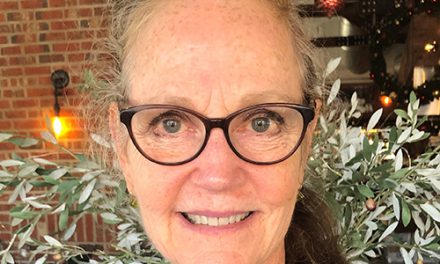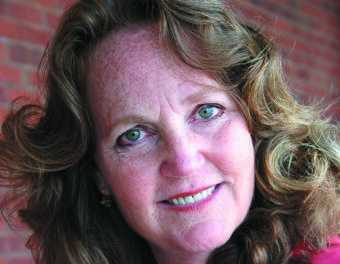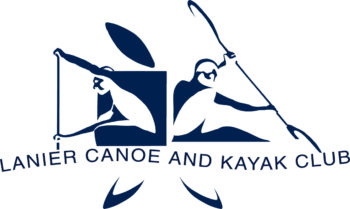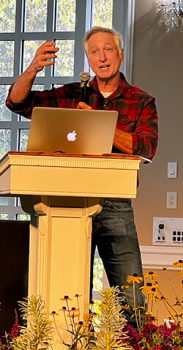
Joe Lamp’l speaks during the Hall County Master Gardeners Fall Gardening Symposium.
It’s not often you can get face-to-face with national and regional gardening experts, so when the Hall County Master Gardeners hosted its Fall Gardening Symposium in October, folks from across the state showed up.
Joe Lamp’l, the Joe in www.joegardener.com, headlined the symposium to talk about “Digging Deeper: Ecological Gardening for Beauty and Biodiversity.” As the creator, executive producer and host of the Emmy Award-winning PBS Series “Growing a Greener World,” he frequently shares his garden knowledge on NBC’s “Today Show” and ABC’s “Good Morning, America.” His newest book, “The Vegetable Gardening Book,” published by Cool Springs Press, is available on Amazon and through his website, growingagreenerworld.com.
Bart Brechter, curator of the Houston Museum of Fine Arts Gardens, spoke about camellias and azaleas. The museum’s 14-acre estate and historic gardens include 64 cultivars of camellias and 38 azalea varieties.
Hall County’s Nathan Wilson, owner of Lanier Nursery and Gardens, shared his step-by-step process for “Maximizing Your Garden in Three Easy Steps.” The nursery is located at 4195 Schubert Rd. in Flowery Branch; the website is www.laniernurserygardens.com.
Lamp’l’s presentation covered several topics, including how to identify “good” pests and “harmful” garden pests. Many perceived garden pests look similar to beneficial insects. For example, he pointed out Lady Beetle larva as a beneficial pest that will eat more aphids than the adult Lade Beetle, and its look-alike Squash Vine Bore that targets squash at the base of the plant and can eradicate a squash plant before it starts producing.
“Less than 3 percent of insects are not beneficial to the garden, so it’s a good idea to know the difference,” he said.
He recommends determining your action thresholds of how much damage you can tolerate, use manual controls and organic options like insecticidal soap, horticultural oils or diatomaceous earth to avoid killing the beneficial insects for more sustainable gardening.
Lamp’l promoted composting for ecological gardening, pointing out that around 65 percent of waste that ends up in landfills can be either recycled or composted.
Food waste, except meat products, plus household paper, cardboard and packaging can be composted to create soil that promotes growth of good organisms, including earthworms.
Lamp’l’s “Online Gardening Academy” offers five multi-session in-depth courses for gardeners of all experience levels. Learn more at OrganicGardeningAcademy.com.
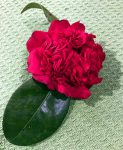
Camellia – Professor Sargent
Brechter, son of the late Ron Brechter who was a Hall County Master Gardener for nearly two decades, shared information about camellias and azaleas and their appeal in the landscape. The late fall- to early spring- blooming camellias provide winter blossoms when almost every other plant in the garden is dormant. Although they are not native to North America, they have become synonymous with the South, with more than 30,000 named cultivars.
Like camellias, azaleas prefer slightly acidic soil, which is common in north Georgia. If azaleas need pruning, either for rejuvenation or to manage their size, do so in the spring immediately after the blooms have faded. Pruning for Encore azaleas, which can have three bloom seasons, should also take place in the spring.
Feed camellias and most azaleas in the spring. Encores, however, prefer being fertilized in September. Use cotton-seed meal or an Espoma organic product developed for acid-loving plants, available at box retailers and area nurseries.
For more information about gardening in North Georgia, visit hallmastergardeners.com. To access plant information from the University of Georgia extension and to download plant-specific publications, visit extension.uga.edu/publications.
Next month: Learn how to maximize your garden from Nathan Wilson, owner of Lanier Nursery and Gardens and speaker at the Hall County Master Gardeners Fall Symposium.
Photos: by Pamela A. Keene

